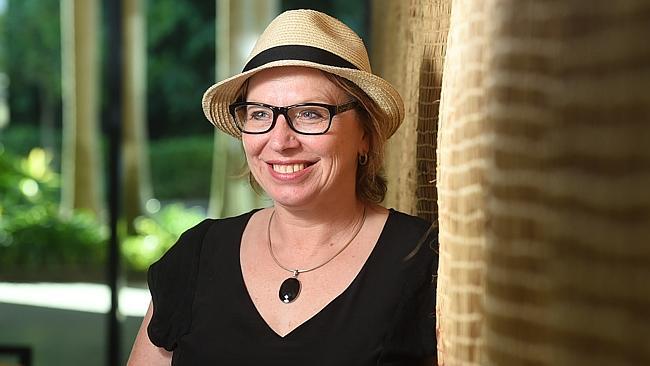How Rosie Batty found the strength to grieve in public — and why she feels sorry for Mark Latham
Most Australians know the story of Rosie Batty. What many people don’t know is that she lost her mum when she was just two years old.

Rendezview
Don't miss out on the headlines from Rendezview. Followed categories will be added to My News.
“You have a choice of how you deal with this … you can stay victimised and hate and blame, or you can look at the opportunity to evolve and grow and be better people. And I seek to be better.”
Most Australians know the story of Rosie Batty.
I spoke to the Australian of the Year, family violence campaigner and one of the most incredibly courageous women I have ever met when she was in Darwin earlier this week.
What Rosie has been dealt with in life is something no parent should ever have to face.
Witnessing her ex-partner, who had a history of violence and mental illness, cold-bloodedly bash and stab to death their 11-year-old son Luke while at cricket practise at a Melbourne oval just 18 months ago is horrific beyond comprehension.
The man was shot by police at the scene in front of shocked onlookers.
But he got the easy way out.
It’s Rosie who is now living out the rest of her days without her only child by her side, losing any aspirations and hopes she might have had for her sport-loving son.
As much as I have admired Rosie’s incredible strength in adversity, her ability to speak so stoically in front of cameras mere hours following Luke’s death was something that initially puzzled me.
Being a naturally anxious, worst-case scenario type person I couldn’t fathom in my mind how someone who had been dealt the most terrible pain imaginable could be so measured and articulate.
I remember watching her interview the day after Luke’s murder, in tears and thinking if that were me I’d be broken and probably on the floor of a hospital under sedation. I couldn’t and wouldn’t again be able to function like a normal human being.
So when I was given the opportunity to sit down with Rosie one-on-one earlier this week the first question I felt I needed to ask her was “how do you do this?”. I needed to know. I needed to understand something that was so, so foreign to me.
And quite frankly this woman blew me away.
What many people don’t know about Rosie is that she lost her mum suddenly when she was just two years of age. She and her two brothers weren’t told about the death of their mum until after the funeral, and even then her father refused to talk about their mother again.
It was his way of dealing with his own pain, but consequently it meant Rosie and her brothers grew up with no knowledge or memories of their mum. She had effectively been wiped from their history.
Rosie believes this feeling of disconnect and suppressed pain subsequently allowed her to develop her tough emotional girth and most likely accounts for her and her brothers never marrying.
And you can’t help but feel there are still so many unresolved conflicts about the loss of the mum who had clearly been incredibly loved. It’s a loss Rosie is still grieving and that is heartbreaking to see.
“You don’t change overnight ... A lot of your life experiences have equipped you to deal with something like (Luke’s death).
“Of course it’s not easy … but I look at the alternatives, and they are even more frightening and uncomfortable.”
When she talks her eyes are constantly filled with penetrating emotion and I believe any parent spending even a few minutes in her presence cannot help but feel the loss and pain emanating from Rosie.
It only took a few minutes for me to realise just how much the loss of her son has affected this human being to the degree that she is left with no choice but to use her pain as a driver to advocate for better understanding of family violence.
Perhaps former federal Labor leader and perennial “trollumnist” Mark Latham could do with spending a bit of time in Rosie’s space.
The now dumped Fairfax columnist launched an offensive tirade against Rosie earlier this year publicly questioning her motives for speaking out publicly following the death of Luke. The man is a misogynist who attacks prominent women in a blowtorch manner, but going after the Australian of the Year because she didn’t fit in with what he perceived was the right way to grieve was just repugnant.
I asked Rosie about Latham, and unbelievably the first thing she remarked on was how sad she was that someone who had a family and children had lost his job. She then went on to question how her domestic violence campaigning could be perceived as the wrong thing to do.
“How could it be a fair reflection to suggest I should be grieving privately without being given the opportunity to try and make change and improve people’s lives?
“How can that be wrong?”
And Rosie is right. It is not wrong. Because of her resilience she has forced domestic and family violence back onto the national agenda.
Her work highlighting the devastation of family and domestic violence — something that affects one in three Australians — is remarkable. She has done more to lift the lid on this issue than anyone or any public campaign I can remember in recent history.
It’s just tragic that it’s taken a woman brave enough to talk about the senseless killing of her son to get us there.


